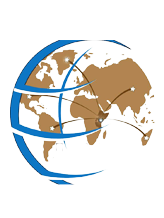Journal of the Language Association of Eastern Africa
Article Title
Abstract
Radio phone-in programmes are relevant for linguistic analysis in multilingual contexts, like Kenya and Cameroon, because they provide relatively natural data in expert-user and user-user contexts in an often emotional interactive environment. Any topic on relationships is an emotive undertaking in any society given the varied cultural disparities. In radio phone-in programmes, speech activities such as advice-giving and advice-receiving are also performed symmetrically or asymmetrically. In this media format, code-switching is a highly important phenomenon that is an expected and unconscious part of the linguistic behaviour of multilingual speakers. Switches between languages are highly relevant since they provide evidence for evaluations of language variety, power and authority as well as language and emotion. This research explores the extent to which code-switching is used in radio phone-in programmes during discussions on relationships. In this article, we focus on the social and pragmatic motivations of code-switching between the caller and the host during the phone-in sessions. The Kenyan data was collected from two radio phone-in programmes: The Breakfast Show on Classic 105 Fm and The Big Breakfast on Kiss 100, where participants switch from English, Kiswahili, Sheng, and mother tongue in isolated occurrence. At the same time, two radio phone-in programmes from Cameroon, Make we Talk and The Other Side of Midnight, were considered for illustrations with code-switches between English and Pidgin. The analysis reveals that situational code-switching was dominant for the Cameroonian data, while metaphorical switches were evident for the Kenyan data. The findings further demonstrate that speakers’ code-switching is far from random but that they switch between languages at specific times for particular reasons, especially in informal emotion-provoking (public) discourse in order to achieve meaning and urgency.
Recommended Citation
Otundo, Billian Khalayi and Mühleisen, Susanne
(2022)
"Code-switching and advising in multilingual African situations: An analysis of radio phone-in programmes in Kenya and Cameroon,"
Journal of the Language Association of Eastern Africa:
Vol. 1:
No.
1, Article 5.
Available at:
https://scholarship.claremont.edu/jlaea/vol1/iss1/5
Included in
Anthropological Linguistics and Sociolinguistics Commons, Discourse and Text Linguistics Commons









